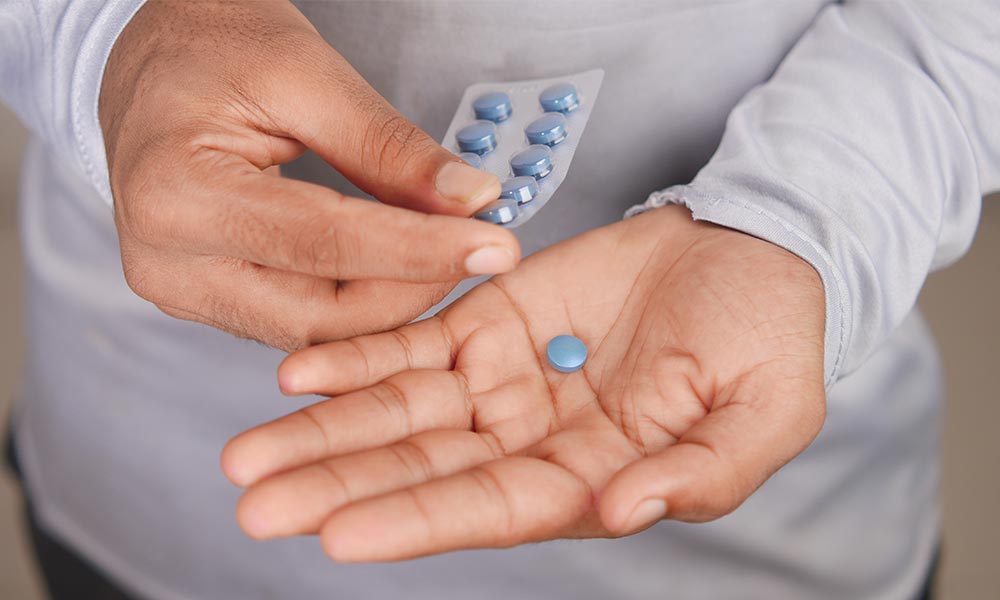
Is Cyclobenzaprine Addictive? Knowing the Signs and Addiction Risks
Key Points
- Cyclobenzaprine is a muscle relaxant prescribed to relieve the pain associated with muscle spasms, sprains, strains, and minor injuries.
- Though cyclobenzaprine is not considered a physically addictive drug, there have been instances when people have misused or abused it for different effects or combined it with other substances.
- Cyclobenzaprine abuse or misuse can carry significant risks, including worsening side effects, withdrawal complications, and possible overdose.
Cyclobenzaprine is a muscle relaxant medication prescribed to relieve pain and discomfort associated with minor injuries, sprains, strains, and muscle spasms. It’s not generally regarded as a drug of abuse or an addictive drug like other muscle relaxants. However, there have been reports of misuse, abuse, or psychological addiction to be aware of.
What Is Cyclobenzaprine?
Cyclobenzaprine is a muscle relaxant and central nervous system (CNS) depressant prescribed to relieve muscle and nerve pain caused by muscle sprains, strains, and other injuries. It’s typically used with other treatments, such as physical therapy or rest.
The drug works by slowing the activity of the CNS, which can contribute to muscle contractions and spasms.[1] This helps the muscles relax, easing pain and tension. Cyclobenzaprine acts on the brain stem to block serotonin receptors and alleviate muscle spasms, leading to deep relaxation.
Cyclobenzaprine used to be sold under Flexeril, but the brand has been discontinued.[2] However, generic versions of cyclobenzaprine are still on the market. The drug is typically prescribed for short-term use for acute muscle pain or spasms, not as a long-term drug for chronic conditions with muscle spasms as a symptom.
Cyclobenzaprine Side Effects
Cyclobenzaprine has some side effects that can be mild or severe, including:[3]
- Dizziness
- Fatigue
- Dry mouth
- Drowsiness
- Constipation
There is a risk of severe side effects, including:[4]
- Fainting
- Liver problems
- Rapid heartbeat
- Abnormal heart rhythm
- Extremely high or low blood pressure
- Confusion
- Poor concentration
- Allergic reaction (anaphylaxis)
Another risk of serotonin syndrome, a life-threatening condition, is symptoms like muscle rigidity, seizures, fever, shivering, or death. The risk of serotonin syndrome is more likely to occur when cyclobenzaprine is combined with other drugs that affect serotonin levels, such as antidepressants.
Is Cyclobenzaprine Addictive?
Cyclobenzaprine is not considered an addictive drug and is not classified as a controlled substance under the Drug Enforcement Administration (DEA) Controlled Substances Act. However, the DEA has reported misuse and abuse of cyclobenzaprine and roughly 12,400 emergency room visits associated with cyclobenzaprine use in 2010.[5]
The cases of cyclobenzaprine abuse have been associated with other substances like illicit drugs and alcohol, which may be used to increase the euphoria or enhance relaxation. Cyclobenzaprine may be misused to gain deeper levels of relaxation or sedation.
Cyclobenzaprine is only intended for short-term relief of acute muscle pain from injuries like strains or sprains. It’s prescribed for two—or three-week periods, not long-term use, for conditions that have chronic muscle spasticity or pain, such as cerebral palsy, amyotrophic lateral sclerosis (ALS), or multiple sclerosis (MS).
Using cyclobenzaprine for longer periods than intended, at higher doses than intended, or mixed with other drugs increases the risk of addiction and serious risks. Long-term use of cyclobenzaprine builds tolerance, which means you need higher doses to get the same effects. This builds dependence over time, leading the body to need the drug to function properly. If you stop taking it suddenly or reduce your dose, withdrawal symptoms like nausea, headache, and general illness may occur.
Can You Overdose on Cyclobenzaprine?
Yes, it’s possible to overdose on cyclobenzaprine, especially if it’s misused or abused. Overdose symptoms may include excessive drowsiness and an elevated heart rate, but it’s possible to have more severe symptoms like:[6]
- Severe agitation
- Nausea
- Vomiting
- Slurred speech
- Seizures
- Chest pains
- High or low blood pressure
- Confusion
- Hallucinations
- Cardiac arrhythmia
- Cardiac arrest
- Coma
- Loss of bodily control
A suspected cyclobenzaprine overdose requires immediate medical intervention to prevent complications.
Signs and Symptoms of Cyclobenzaprine Addiction
Cyclobenzaprine is prescribed for short-term treatment of specific muscle conditions. It’s generally safe and well tolerated, but there is a risk of addiction with long-term use, misuse, or abuse.
The signs of cyclobenzaprine abuse are similar to other drugs and may include:[7]
- Taking the drug more often or at higher doses than intended
- Combining cyclobenzaprine with other substances
- Using cyclobenzaprine despite negative effects
- Failing responsibilities because of cyclobenzaprine use
- Misusing cyclobenzaprine for uses other than intended
- Inability to control cyclobenzaprine use
- Using cyclobenzaprine to help with the crash from stimulant drugs
- Strained relationships because of cyclobenzaprine use
- Experiencing legal, financial, or health problems because of cyclobenzaprine use
Some other indications of cyclobenzaprine use are similar to other compulsive drug use, such as fluctuations in weight, mood swings, neglecting personal hygiene, sleep problems, isolation, or secretive behavior.
Treatment for Cyclobenzaprine Addiction
There have been reports of cyclobenzaprine abuse and addiction, but it’s not on the same level as drugs of abuse like opioids, stimulants, benzodiazepines, or alcohol. However, cyclobenzaprine addiction still has risks and may involve other drugs (polydrug abuse).
Like other addictions, cyclobenzaprine addiction should be approached with individual treatment plans that consider medical and mental health history, substance use history, and treatment goals. It can be challenging to treat cyclobenzaprine addiction if other substances are involved or the addiction developed from a prescription used to relieve pain associated with a medical problem.
In some cases, medical detox or a taper schedule may be necessary to manage withdrawal symptoms. This is an important foundation for transitioning into a comprehensive treatment plan with inpatient treatment, intensive outpatient programs (IOPs), or outpatient programs.
Each treatment plan is personalized, regardless of the treatment setting, but several therapies may be used to treat cyclobenzaprine addiction and possible polydrug abuse. Some of the common therapies used for cyclobenzaprine addiction treatment include group counseling, behavioral therapies like cognitive behavioral therapy (CBT) or dialectical behavioral therapy (DBT), motivational interviewing (MI), and family therapy. Other specialized programs, such as eye movement desensitization and reprocessing (EMDR) or veterans programs, may be recommended if the cyclobenzaprine abuse is associated with a traumatic experience or injury.
Staying Safe with Cyclobenzaprine
Cyclobenzaprine is an effective muscle relaxant medication for treating short-term pain from muscle spasms or injuries. It’s not typically viewed as an addictive drug, but there have been instances of misuse, abuse, or addiction. If you or a loved one is struggling with cyclobenzaprine abuse, it’s important to seek help to avoid serious side effects or risks.
Frequently Asked Questions About Cyclobenzaprine
Is Cyclobenzaprine an Opioid?
No, cyclobenzaprine is not an opioid. It’s a muscle relaxant that relieves pain by relaxing muscle tension, but it’s not a painkiller.
Can You Have Withdrawals from Cyclobenzaprine?
It’s possible to experience withdrawal symptoms if you’ve taken cyclobenzaprine for long periods and stop suddenly. However, this can also be a sign of cyclobenzaprine abuse.
Is Cyclobenzaprine a Controlled Substance?
No, cyclobenzaprine is not a controlled substance and doesn’t have abuse potential or addictive potential on the same level as opioids, stimulants, or depressants. However, it’s possible to experience psychological dependence or withdrawal symptoms if you stop taking cyclobenzaprine abruptly.
Does Cyclobenzaprine Cause Drowsiness?
Yes, cyclobenzaprine is a central nervous system (CNS) depressant that can cause fatigue, drowsiness, and dizziness, like CNS depressants and muscle relaxants. These side effects are worsened if you combine cyclobenzaprine with other depressants, such as opioids or alcohol. It’s important to avoid driving or doing anything else that requires alertness until you know how this drug affects you.
Does Cyclobenzaprine Show Up on a Drug Test?
Cyclobenzaprine is not a physically addictive drug, a commonly abused drug, or a controlled substance, so it’s not included in most routine drug screenings for pre-employment or law enforcement. However, it can cause a false positive for tricyclic antidepressants in urine tests.[8] It’s best to disclose any prescriptions you’re taking before the drug test.
Sources
[1] Khan, I. (2023, August 28). Cyclobenzaprine. StatPearls [Internet]. Retrieved from https://www.ncbi.nlm.nih.gov/books/NBK513362/ on 2025, April 29.
[2] U.S. National Library of Medicine. (n.d.-b). Cyclobenzaprine: Medlineplus drug information. MedlinePlus. Retrieved from https://medlineplus.gov/druginfo/meds/a682514.html on 2025, April 29.
[3,4] National Institutes of Health. (n.d.-b). DailyMed – cyclobenzaprine- cyclobenzaprine hydrochloride tablet, film coated. U.S. National Library of Medicine. Retrieved from https://dailymed.nlm.nih.gov/dailymed/drugInfo.cfm?setid=b12fb4ea-182e-462b-b6ed-cfd2f6bb71e8 on 2025, April 29.
[5] Cyclobenzaprine (brand name: Flexeril®, Amrix®). (n.d.-b). Retrieved from https://www.deadiversion.usdoj.gov/drug_chem_info/cyclobenzaprine.pdf on 2025, April 29.
[6] Is cyclobenzaprine a controlled substance or addictive?. Drugs.com. (n.d.-f). Retrieved from https://www.drugs.com/medical-answers/cyclobenzaprine-controlled-substance-addictive-3571921/ on 2025, April 29.
[7] Mayo Foundation for Medical Education and Research. (2022, October 4). Drug addiction (substance use disorder). Mayo Clinic. Retrieved from https://www.mayoclinic.org/diseases-conditions/drug-addiction/symptoms-causes/syc-20365112 on 2025, April 29.
[8] Is Flexeril addictive, will it show up on a drug test?. Drugs.com. (n.d.-g). Retrieved from https://www.drugs.com/medical-answers/flexeril-addictive-show-drug-test-3573670/ on 2025, April 29.


